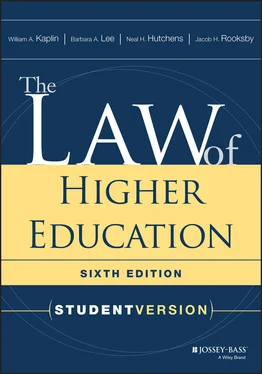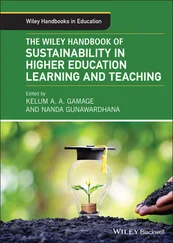In the aftermath of the tragic mass shootings that occurred in classrooms on the Virginia Tech campus in 2007, two families of deceased students sued the Commonwealth of Virginia for wrongful death (having elected not to participate in a special settlement fund established in the wake of the tragedy). A lower court awarded the families money damages under the state's tort claims act, finding that university officials owed the decedents a duty to be warned of potential risk of harm from the shooter, who had killed one student and critically wounded another in a dormitory before embarking on a killing spree at Norris Hall, an academic building. The university knew of the dormitory incident, and that the shooter had not been apprehended, but relied on police reports that the violence was an isolated crime, that the shooter had fled the area, and that no ongoing threat was posed to others.
In a high-profile decision, the lower court's award was overturned on appeal to the Supreme Court of Virginia. For the sake of argument, the court assumed that a special relationship existed between the university and its students. Even assuming such a relationship, the court held that the university was under no duty to warn students about the potential for criminal acts by third parties, as the risk posed was neither known nor reasonably foreseeable to the university. Commonwealth of Virginia v. Peterson , 286 Va. 349 (2013). See also Desir v. Mallett , 2015 WL 3492499 (Ct. App. Oh. 2015) (holding that defendant college owed no duty to warn or protect student who was stabbed by assailant in college's office).
In Regents of the University of California v. Rosen , 413 P.3d 656 (Cal. 2018), a UCLA student who had been attacked by another student with a kitchen knife during a chemistry laboratory sued the university and several UCLA employees, alleging that a special relationship existed between her and the university and that the university breached its duty of care by failing to adopt reasonable measures that would have protected her from the attacker's allegedly foreseeable violent conduct. The injured student claimed the attack was foreseeable to the university because the attacker had been treated by the institution for schizophrenia disorder and paranoid thinking several months prior to the attack. The attacker also had engaged in a non-violent physical confrontation with another student, which resulted in his expulsion from campus housing.
The trial court denied defendants' motion for summary judgment, concluding that defendants owed plaintiff a duty of care based on her status as a student or, alternatively, as a business invitee onto campus property. The intermediate appellate court came to the opposite conclusion, holding that “a public university has no general duty to protect its students from the criminal acts of other students.” 193 Cal.Rptr.3d 447, 451 (Cal. Ct. App. 2015).
Given the vocal dissent in the intermediate appellate court's decision, and the press attention the case received, perhaps it was inevitable that the Supreme Court of California would grant review of the case. 364 P.3d 174 (Cal. 2016). In a highly anticipated opinion, the court reversed, holding that “universities do have a legal duty, under certain circumstances, to protect or warn their students from foreseeable violence in the classroom or during curricular activities.” (413 P.3d at 663). Central to the court's decision is recognition that colleges and universities have a special relationship with students “while they are engaged in activities that are part of the school's curriculum or closely related to its delivery of educational services” (413 P.3d at 667).
3.2.2.4 Liability for injuries in off-campus courses.An increasing number of lawsuits seek to impose liability on colleges, universities, and their staff for injuries occurring during off-campus courses. Many graduate programs and an increasing number of undergraduate programs require some form of off-campus internship experience for students. Student teaching is required for students seeking degrees or licenses in education; social work students are typically required to complete a practicum in a social service agency; and students enrolled in health care–related programs may also have off-campus educational requirements. These experiences provide valuable opportunities for student learning but may create liability for a college or university, even if it has no real control over what the student encounters in the off-campus placement.
Liability for activities at an off-campus site can occur in several ways. For example, an institution may be responsible for maintaining the safety of premises it does not own if it schedules a course there. In Delbridge v. Maricopa County Community College District , 893 P.2d 55 (Ariz. Ct. App. 1994), a college offered a course in plant mechanics to employees of the Salt River Project (SRP) on the site of that organization. Although SRP employees performed the instruction, they were considered adjunct faculty of the college, and they were paid by the college. Individuals participating in the course were considered students of the college. As part of the course, the students were required to learn to climb a utility pole. The plaintiff, a student in the class, climbed the pole, lost his grip, fell, and was seriously injured. His lawsuit alleged negligence on the part of the college in not providing him with a safe environment.
The trial court awarded summary judgment to the college, but the appellate court reversed, ruling that there was a special relationship between the college and the student. Despite the fact that the premises were also under the control of SRP, said the court, the college also had a duty not to expose its students to an unreasonable risk of harm. Furthermore, the student was acting under the supervision of a college instructor. The case was remanded for a trial court's determination as to whether the college breached its duty to the plaintiff.
A significant decision by a Florida appellate court addressed the liability of a college to a student injured at the site of an off-campus internship. In Gross v. Family Services Agency and Nova Southeastern University, Inc ., 716 So.2d 337 (Fla. Dist. Ct. App. 1998), the plaintiff had enrolled in the doctoral program in psychology at Nova Southeastern University. The program required her to complete an 11-month practicum at an off-campus organization. Nova gave each student a list of preapproved practicum sites, and students selected six possible sites. Nova controlled the placement of students at the sites. Gross was placed at Family Services Agency, approximately 15 miles from the university. One evening, while leaving the agency, Gross was assaulted by a man in the agency's parking lot and was injured. Previous assaults had occurred in the parking lot, a fact of which the university was aware but the student was not. The student sued the university for negligence in assigning her to an unreasonably dangerous internship site without adequate warning. She also sued the agency, which settled her claim.
Although the trial court awarded summary judgment to the university, stating that it had no duty to control the agency's parking lot, the appellate court reversed. The court rejected the trial court's determination that this was a premises liability case, characterizing the college's duty as one of exercising “reasonable care in assigning [the student] to an internship site, including the duty to warn her of foreseeable and unreasonable risks of injury” (716 So.2d at 337). The court characterized the relationship between the student and the university as “an adult who pays a fee for services [the student] and the provider of those services [the university].” Therefore, said the court, the university had a duty to use ordinary care in providing educational services and programs. If the student was injured by the acts of a third party, then the university would be liable only if a special relationship existed. The court ruled that a special relationship did exist in this situation, relying upon a case involving litigation by a British tourist who sued a car rental company for failure to warn customers about the risk of crime in certain areas of Miami. The car agency's knowledge of the risk of crime, and the fact that the tourist was not from the United States, created a special duty, said that court, to warn the foreign tourist of “foreseeable criminal conduct” ( Shurben v. Dollar Rent-A-Car , 676 So.2d 467 (Fla. Dist. Ct. App. 1996)). So, too, the university had a duty to warn the student of the risk of assault, given its knowledge that previous assaults had occurred in the vicinity.
Читать дальше












